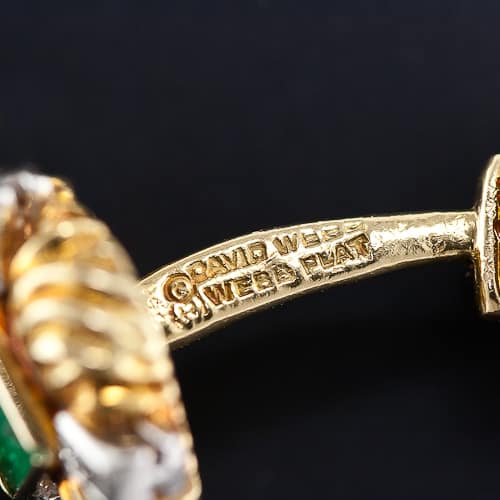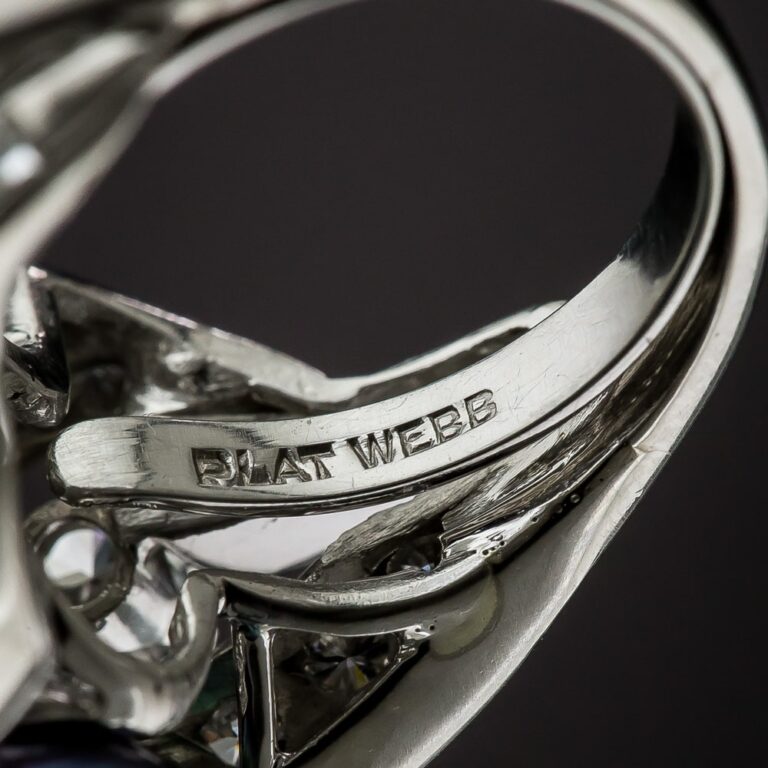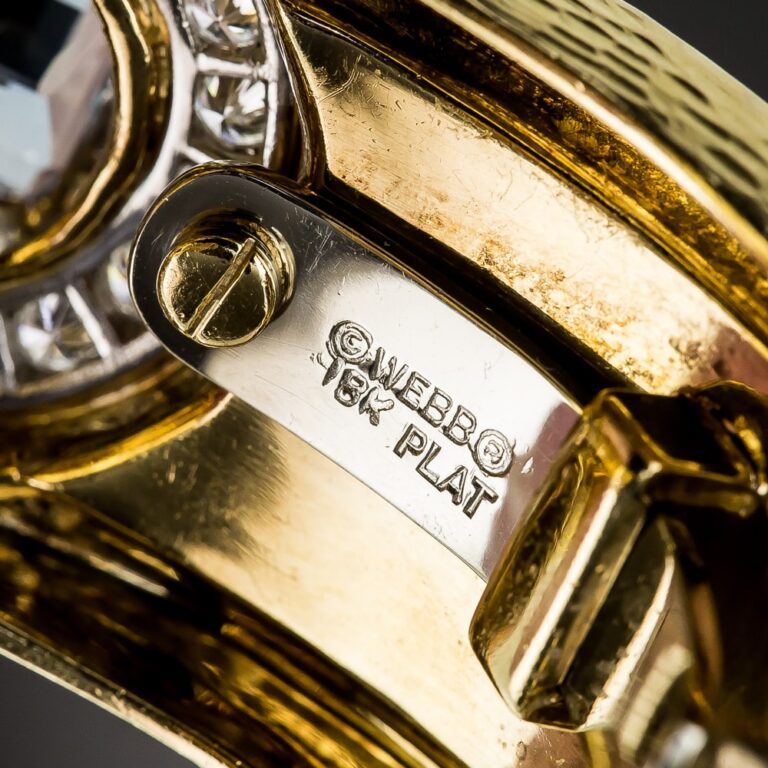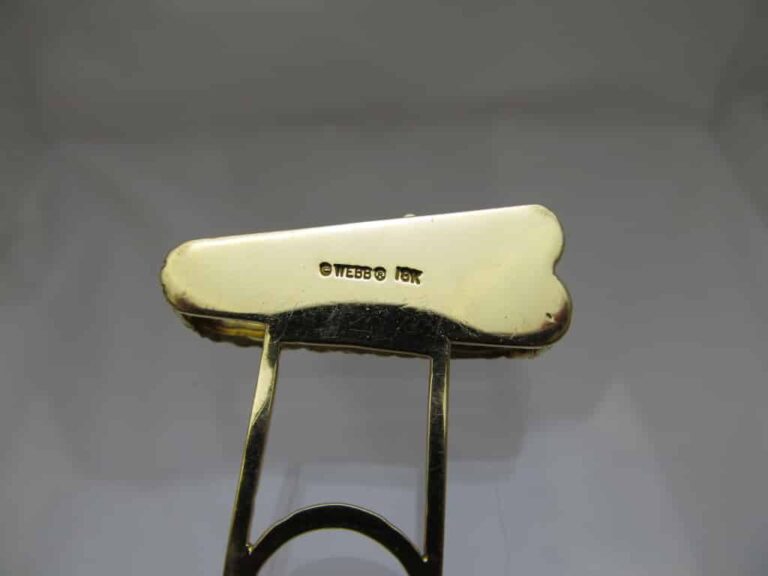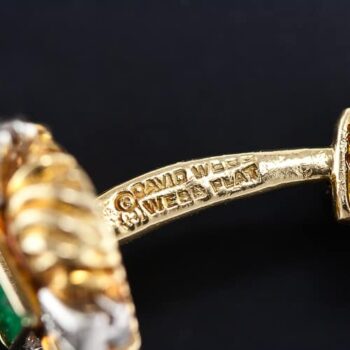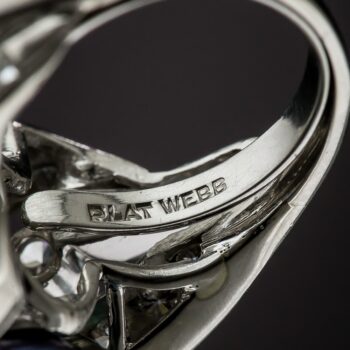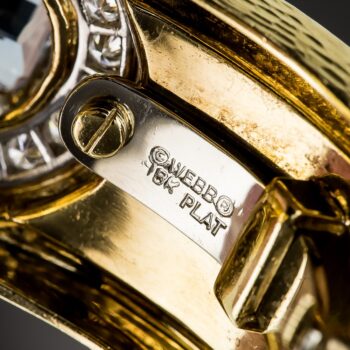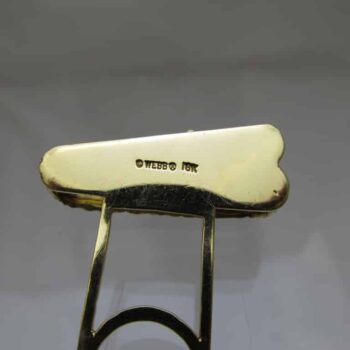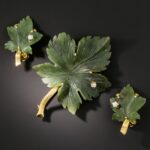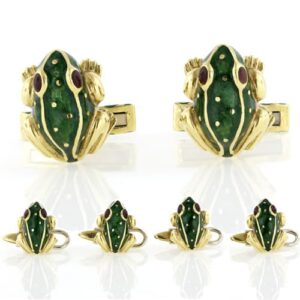
David Webb was an American jeweler famous for his sculptural work in the 1960s. In 1948, David Webb and business partner Nina Silberstein opened David Webb, Inc. on 47th Street in New York City. Throughout the 1950s, the firm supplied jewelry to upscale clients like Bergdorf Goodman and Bonwit Teller. In 1963, Webb opened up his own salon at 7 East 57th Street, thus ending his wholesaling days.1
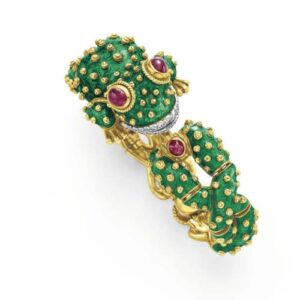
Photo Courtesy of Christie’s
Around this time, he vaulted into fame when Vogue Magazine lauded his brightly enameled, animal-motif jewelry in one of their spreads. The pieces, as he readily acknowledged, were inspired by the bejeweled animals designed by Jeanne Toussaint for Cartier at the beginning of the century, as well as Fabergé’s richly enameled jewels and eighteenth-century Indian enamel work.2
For the rest of the decade, it was hard not to see Webb’s pieces. Celebrities flaunted them, and his work was conspicuously and consistently displayed in popular fashion magazines. Webb also became famous for his precious objects. He was commissioned by the likes of Jacqueline Kennedy and Richard Nixon to create numerous gifts for foreign diplomats. For Japanese Prime Minister Eisaku Sato, he designed a 14-karat gold recreation of the White House.3 For King Hassan of Morroco, Webb created an American eagle with a large citrine in its beak.
When Webb died in 1975, Nina Silberstein assumed control of the firm’s management and its design.
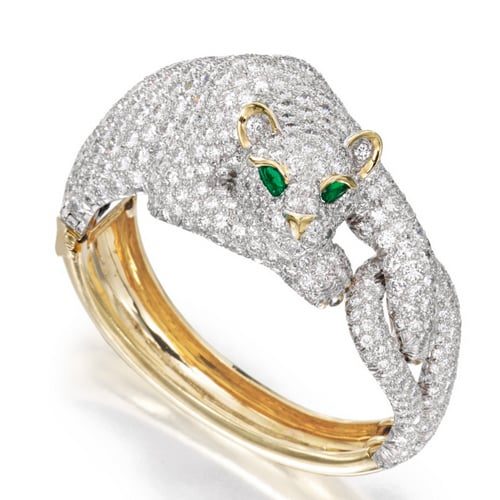
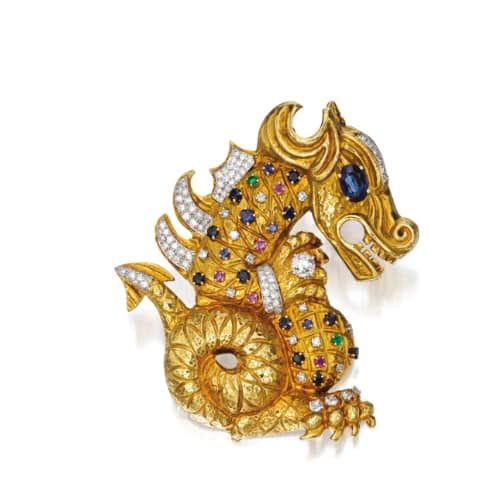
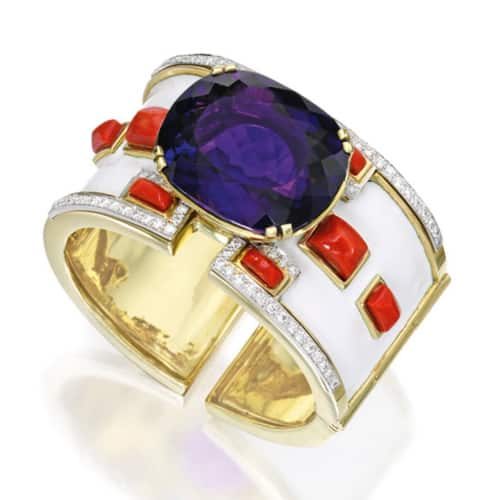
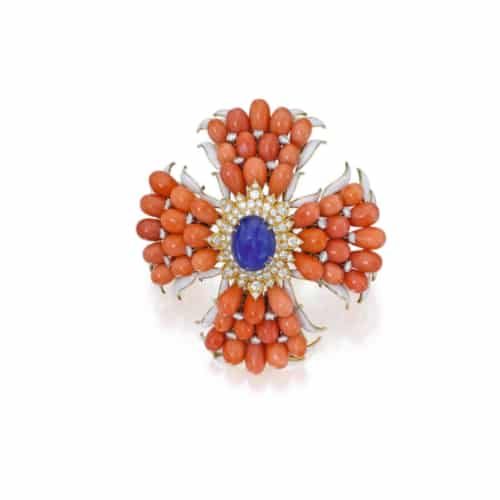
Maker's Marks & Timeline
Specialties
- Famous for his “Jeweled Jungle”
1948
- David Webb and Nina Silberstein opened David Webb, Inc. in New York.
1950s-1960s
- Bold flowers and organic forms.
1964
- Duke of Windsor buys a frog bracelet.
1970s
- Began producing more subtle designs to go with less flamboyant times.
1975
- David Webb dies and the Silberstein family continued production of his iconic designs.
2010
- Sold to Sima Ghadamian, Mark Emanuel and Robert Saidian.
- Continuing the tradition drawing on previously unproduced designs from the extensive archives and using the original molds.
- Gem materials and updated functional aspects (earring backs, etc.) distinguish the “old” from the “new.”
Related Reading
Sources
- Proddow, Penny & Debra Healy. American Jewelry: Glamour & Tradition. New York: Rizzoli, 1987.
- Traina, John. Extraordinary Jewels. New York: Double Day, 1994.
